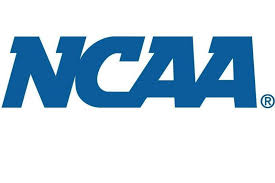NCAA college athletes can finally get paid
The NCAA allows college athletes to make money off their name and likeness

The NCAA looks at changes into their policy on student athletes profiting from their name
November 18, 2019
The NCAA announced earlier this month that they will allow student athletes from all three divisions, D1, D2 and D3 to make money off their name and image. Before this, it was illegal for athletes to make money off their name and if they broke this rule, their schools could receive massive punishments and also the image of the athlete looked poor.
For example, former Heisman trophy winner Reggie Bush was caught receiving “improper benefits” from outside companies so they could get him to sign a deal once he got into the league. It’s reported that Bush’s family received thousands of dollars from those companies. Because of this, Bush was forced to return his heisman trophy and USC eliminated all of his accomplishments from the program. USC also got punished for this as they received sanctions which included a two year postseason ban, the loss of 30 scholarships, vacating old games (which included their BCS National Championship) and dissociating with Bush. There has been almost 20 different scandals that were similar to this.
A little before the new rule was made, the state of California passed a law that allowed student athletes to make money off their image. After that, most people thought if the NCAA wasn’t going to make a new rule then all the other states would pass the law like California did. At the time this seemed a little unfair in terms of where athletes would sign to as it would make a big difference in recruiting for all sports. As some colleges would use the law to have an impact on where a recruit would go.
Soon after that the NCAA caught onto it and passed the law for all schools. Personally, it isn’t fair that so many student athletes have to leave thousands of dollars on the table because of the rule.
Brian Rosenberg, president of Macalester College, stated that universities with top teams can scrap in nearly $20 million a year from sponsorships from Nike and Adidas while the athletes, who are the main reason these colleges get those sponsorships, walk away with nothing.
But with the new rule, the options for athletes and schools are endless. Like in 2014, EA sports stopped the continuation of one of its most popular games, NCAA Football. As they were forced to stop making them because of all the student athletes wanting to make money off the game. While their names were never put into the game, their image and their jersey numbers were included. Now with the new rule, EA can bring back the highly popular game. Also, it can create a new way companies like Nike and Adidas can spread their brand. If one of those companies want to release some new equipment, then they can make a deal with a big name college athlete and have them try it on in a game. While these may just be some ideas, it won’t be a shock to see these come into effect.
It feels like something that should have been here so long ago and it seems like the NCAA was stealing money from student athletes. The athletes make these schools what they are now. For the most part, the athletes make these schools relevant in the first place. For example, the Alabama Crimson Tide became a dynasty under current head coach Nick Saban. His first year as head coach was in 2007, since then Alabama’s enrollment has doubled to more than 6,000 students. Although not all of this is from football and their sports, but there is no doubt that it has made a big impact on enrollment numbers.
College athletes getting paid is extremely important and now that they will be able to after so long is amazing to see. They have to watch as their schools get millions of dollars in sponsorships because of their play on the field while they get zero percent of it. The athletes have to put in hard work every season while still having to go to class and keep up with their studies just to stay on the team, for the players that are the best in their sports, they can’t make money because of some stupid rule that doesn’t make much sense. It is great to see that the NCAA is finally hearing the athletes out and changing the rule.






